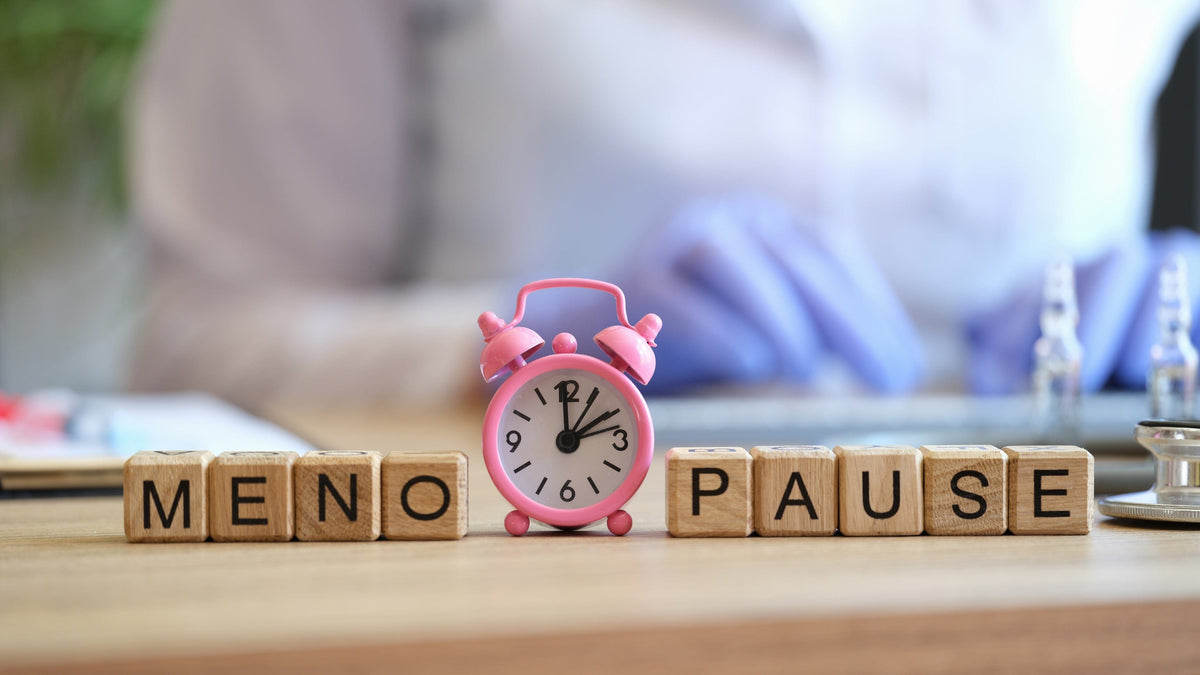How do women feel about the menopause transition? The answer isn’t quite that simple and that’s exactly the point.
For too long, menopause has been a taboo topic, sidelined by stigma, myths and misunderstanding. But as more women begin to speak up, a richer, more honest conversation is taking shape.
A recent survey by The Ohio State University Wexner Medical Center revealed that nearly two-thirds of women felt unprepared for perimenopause and menopause. Many were unaware of symptoms like brain fog, anxiety, and mood swings until they were already in the thick of them.1
It’s time to shift that narrative.
In this article, we’ll explore what menopause really feels like—physically, emotionally, and socially—and how women across the globe are reshaping what it means to move through this profound life transition.
Understanding the Menopause Stages
While menopause itself is only one, singly day in time, the menopause transition medically unfolds across three stages:2
- Perimenopause: The years leading up to menopause when hormones begin to fluctuate. Symptoms can include irregular menstrual cycles, hot flashes, and irritability.
- Menopause: Defined as 12 consecutive months without a menstrual period.
- Postmenopause: The years after menopause, when symptoms may persist or change, and long-term health risks (like osteoporosis or cardiovascular disease) can emerge.
Despite these definitions, many women are still unsure of which stage they're in. In Bonafide’s 2024 State of Menopause Report we found that only 18% of women surveyed know the true definition of menopause.3 A lack of education and understanding leaves many navigating this phase feeling isolated and confused.
What Does Menopause Feel Like?
There is no one-size-fits-all answer to what does menopause feel like, but many women describe it as “disorienting”. Some may feel emotionally uneasy, citing anxiety, mood swings, or a foggy sense of self. Others may experience unexpected joy or relief, especially from the end of monthly cycles.
In a 2022 global study, women described menopause as feeling “a loss of control over their body and mind” and “bad and inefficient”.4 In a 2024 survey, participants frequently reported feeling “not like myself anymore,” highlighting a disconnect from their previous identities.5
Yet not all experiences are negative.
In the Wisdom of Menopause, Dr. Christiane Northrup frames this life stage as one of empowerment and self-reclamation—an idea supported by studies showing many women who embrace menopause as a new beginning –again, each experience will be unique.6
Is Menopause Really That Bad?
That’s the question many women ask themselves—is menopause really that bad? The answer, again, depends on who you ask.
For some, menopause brings disruptive physical symptoms like hot flashes, vaginal dryness, or night sweats. For others, it's an opportunity to slow down, reflect, and reprioritize.7
The wide variability in symptoms and attitudes about menopause reinforces one truth: the transition is as individual as each woman experiencing it.
Why So Many Women Feel Unprepared
So, why do women often feel so in the dark about something half the population will experience?
The problem often lies in cultural silence. A 2022 study found that menopause education is poorly represented in medical training, leaving many healthcare providers underprepared to help patients navigate symptoms.8
This lack of guidance can perpetuate feelings of misunderstanding and fear. Providers may not even ask their patients, how does menopause make you feel, which may lead to women accepting that they’re supposed to suffer in silence. That silence can amplify distress and delay care.
What Women Really Need During Menopause
What women really need isn’t a miracle cure. It’s information. It’s support. It’s empowerment.
Women benefit most from having access to trusted resources, symptom tracking tools, support groups, and healthcare providers who take their concerns about menopause seriously. Educational campaigns, podcasts, and platforms can also help open the conversation and offer information around science-backed solutions.
As one 2021 study from The Menopause Journal on menopause-related podcasts noted, “Just hearing someone talk about it made me feel less alone”.9
Feelings on Menopause Remain Mixed
For some, menopause comes with challenges. For others, freedom.
Many experience some semblance of both.
When we talk about menopause openly and supportively, we create space for honesty and trust. So, if you’re asking what does menopause feel like or wondering is menopause really that bad—know that your experience matters, and you are never alone.
Resources
- https://wexnermedical.osu.edu/mediaroom/pressreleaselisting/survey-shows-womens-perceptions-of-perimenopause
- https://my.clevelandclinic.org/health/diseases/21841-menopause
- https://hellobonafide.com/pages/state-of-menopause-2024
- https://link.springer.com/article/10.1186/s12905-022-01633-0
- https://pmc.ncbi.nlm.nih.gov/articles/PMC11465791/
- https://www.penguinrandomhouse.com/books/568445/the-wisdom-of-menopause-4th-edition-by-christiane-northrup-md/
- https://link.springer.com/article/10.1186/s12905-020-01164-6
- https://www.sciencedirect.com/science/article/pii/S0378512222001803
- https://journals.lww.com/menopausejournal/fulltext/2021/12000/_It_just_makes_me_feel_a_little_less_alone___a.9.aspx








